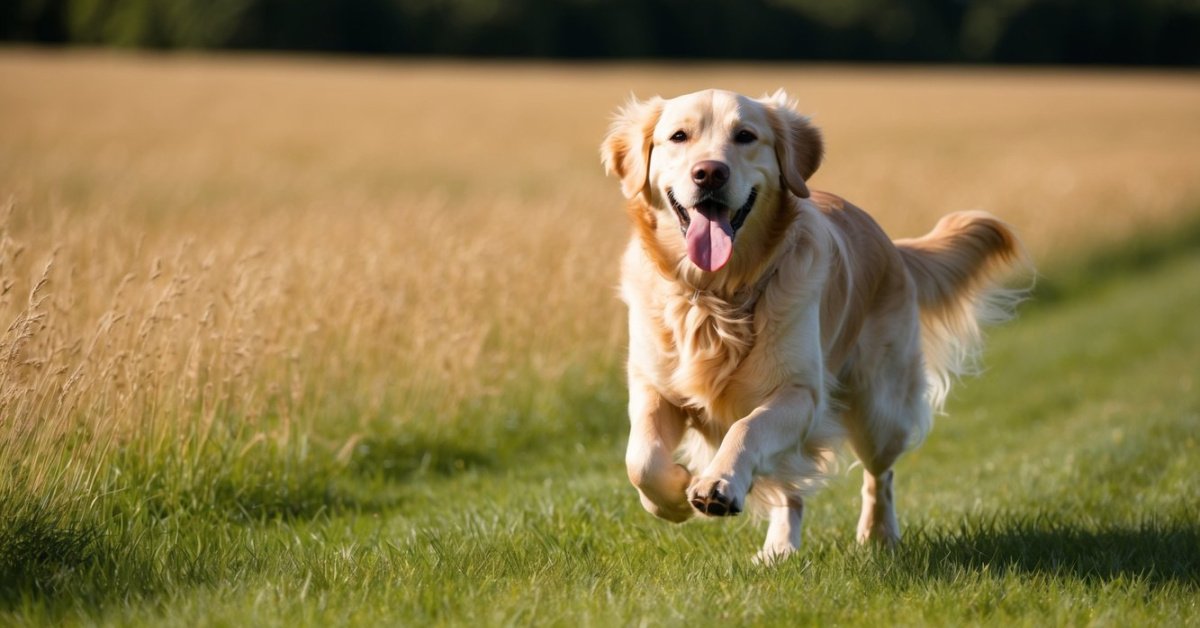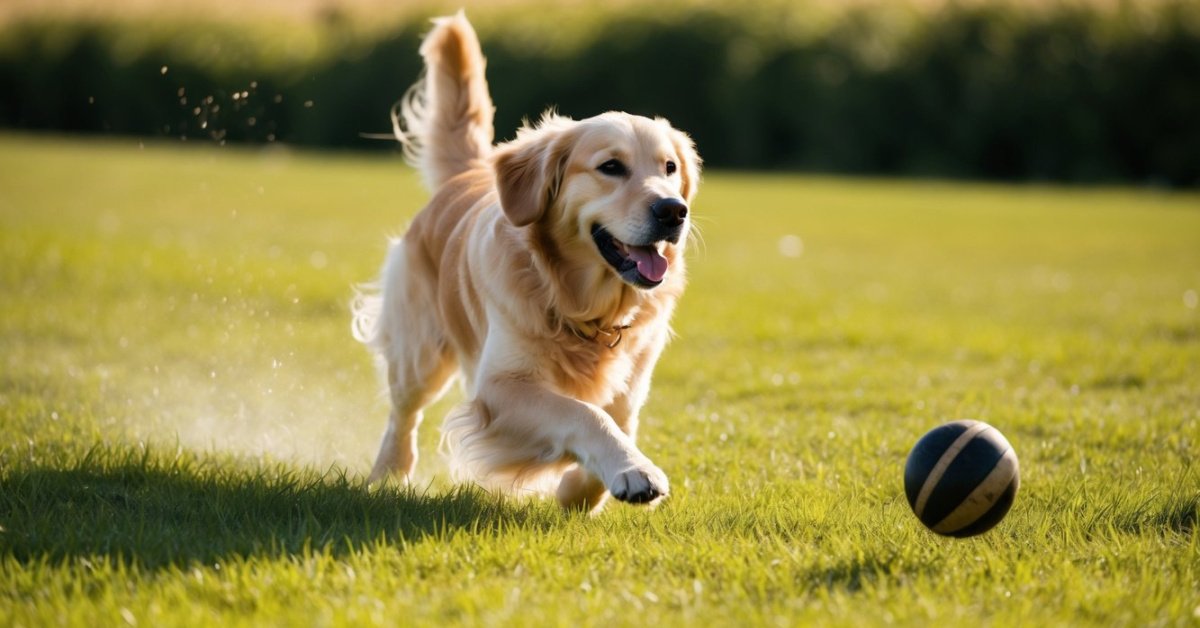Golden Retrievers are one of the most beloved dog breeds, and it’s easy to see why. With their friendly demeanor and playful spirit, they quickly become a cherished part of any family. But what really sets them apart is their unique temperament, which can make all the difference in how they fit into your life.
In this article, I’ll dive into the key traits that define Golden Retriever temperament. From their affectionate nature to their eagerness to please, understanding these characteristics can help you create a strong bond with your furry friend. Whether you’re considering adding a Golden to your family or you already have one by your side, knowing what makes them tick will enhance your relationship and lead to a happier, healthier life together.
Overview of Golden Retrievers
Golden Retrievers are known for their friendly and gentle temperament. They’re often described as loyal companions, displaying a playful spirit that fits well in family environments. This breed typically thrives on human interaction, forming strong bonds with their families.
Golden Retrievers possess a high intelligence level, which makes them easy to train. They’re responsive to commands, often exhibiting eagerness to please. Their affectionate nature allows them to connect deeply with people, showing great empathy and support.
Physical characteristics contribute to their charm. Golden Retrievers usually have a striking golden coat that requires regular grooming. Their expressive eyes often reflect their loving demeanor, making them hard to resist.
Overall, Golden Retrievers exemplify positive traits. Their balanced temperament combines playfulness, loyalty, and intelligence, making them suitable for various living situations. Whether engaged in outdoor activities or simply relaxing on the couch, they adapt well to their environments.
Key Traits of Golden Retriever Temperament
Golden Retrievers possess several key traits that define their temperament. These characteristics contribute to their reputation as friendly and devoted family companions.
Friendly and Social Nature
Golden Retrievers thrive on social interaction. They enjoy engaging with family and strangers alike. Their playful demeanor encourages positive relationships with kids and other pets, making them excellent companions in diverse environments. Their natural ability to connect fosters a joyful atmosphere at home and in public spaces.
Intelligence and Trainability
Golden Retrievers rank among the most intelligent dog breeds. Their quick learning abilities make training straightforward. They respond well to commands and possess a strong desire to please their owners. This eagerness simplifies tasks like obedience training and specialized activities, such as agility or therapy work. Their intelligence not only enhances their capabilities but also enriches the bond between the dog and the owner.
Affectionate and Loyal Personality
Golden Retrievers display unwavering loyalty and affection. They form strong bonds with their families, often seeking companionship and physical closeness. Their gentle nature makes them suitable for therapeutic roles, providing comfort to those in need. This loving disposition creates a nurturing environment, further solidifying their place as cherished family members.
Factors Influencing Temperament
Golden Retriever temperament is shaped by various factors, including genetics and environment. Understanding these influences helps in fostering a well-rounded personality.
Genetics and Breeding
Genetics plays a crucial role in determining a Golden Retriever’s temperament traits. Breeders select for balanced, gentle, and friendly qualities. Well-bred Golden Retrievers tend to exhibit calmness and sociability. Genetic predisposition can affect anxiety or aggression levels as well. Therefore, choosing a reputable breeder ensures a higher likelihood of a stable temperament. Always consider the lineage and background when adopting a puppy.
Environment and Socialization
Environment significantly shapes a Golden Retriever’s behavior. Positive early experiences create a well-adjusted dog. Socialization with different people, pets, and settings helps develop confidence and adaptability. Regular exposure to various environments encourages friendly interactions. Lack of socialization may lead to fear-based behaviors. Establishing a routine that includes new experiences fosters a well-balanced disposition.
Common Behavioral Issues
Golden Retrievers, despite their friendly nature, can exhibit a few behavioral issues. Understanding these issues helps address them effectively and fosters a healthier relationship.

Separation Anxiety
« Top Brushes for Golden Retriever Shedding: Keep Your Home Fur-Free Today
Essential Golden Retriever Care Tips for Beginners: Your Guide to a Happy Pup »
Separation anxiety affects many Golden Retrievers, as they thrive on companionship. Signs include excessive barking, destructive behavior, or attempts to escape when left alone. I’ve found that gradual desensitization works well; I start by leaving my dog alone for short periods and slowly increase the time. Providing toys or puzzles can also keep my dog engaged and distracted. Another effective strategy involves creating a designated safe space where my Golden can relax when I’m away, which helps alleviate anxiety.
Excessive Barking
Excessive barking often stems from boredom, excitement, or a desire for attention. Golden Retrievers are naturally vocal, but continuous barking can become an issue. I address this by ensuring my dog receives plenty of physical exercise and mental stimulation throughout the day. Engaging in activities like fetch, interactive games, or training sessions channels their energy positively. When barking occurs, I calmly redirect their attention to another activity rather than yelling, which helps reinforce quiet behavior. Providing consistent structure can reduce unnecessary barking, making for a more peaceful home environment.
Tips for Raising a Well-Adjusted Golden Retriever
Raising a well-adjusted Golden Retriever involves consistent training and effective socialization. Focusing on these aspects creates a balanced and happy companion.
Training Techniques
Training Golden Retrievers requires patience and positivity. I recommend using the following techniques:
- Positive Reinforcement: Reward good behavior with treats or praise. It encourages learning and builds trust.
- Short Sessions: Keep training sessions brief, around 5-10 minutes. This maintains focus and prevents frustration.
- Consistent Commands: Use clear and consistent commands. It helps your dog understand what you expect.
- Variety of Activities: Incorporate obedience, agility, and tricks. It keeps them engaged and mentally stimulated.
- Regular Practice: Train daily to reinforce skills. Consistency ensures better retention over time.
Socialization Strategies
- Early Exposure: Introduce your puppy to various people, pets, and situations. It builds confidence and reduces fear in new experiences.
- Positive Experiences: Ensure interactions are enjoyable. Positive encounters help develop a friendly disposition.
- Controlled Environments: Arrange meeting buddies in calm settings. Gradually increase the complexity of situations as they become more comfortable.
- Routine Outings: Regularly take them to parks, pet stores, or cafes. These outings expose them to new sights and sounds.
- Group Classes: Enroll in training classes with other dogs. It fosters social skills and provides opportunities for important interactions.
Conclusion
Golden Retrievers truly are a joy to have around. Their friendly nature and loving temperament make them not just pets but cherished family members. I’ve found that understanding their unique traits can really enhance the bond we share.
By being aware of their needs and behaviors, we can create a nurturing environment that allows them to thrive. Whether it’s through training or socialization, every effort we make helps shape a happy and well-adjusted companion. I can’t imagine my life without the warmth and loyalty of my Golden Retriever, and I hope you feel the same way about yours.













![PetDroid Interactive Dog Toys Dog Ball, [Newly Upgraded] Durable Motion](https://m.media-amazon.com/images/I/41P-nlk1L0L._SL500_.jpg)



